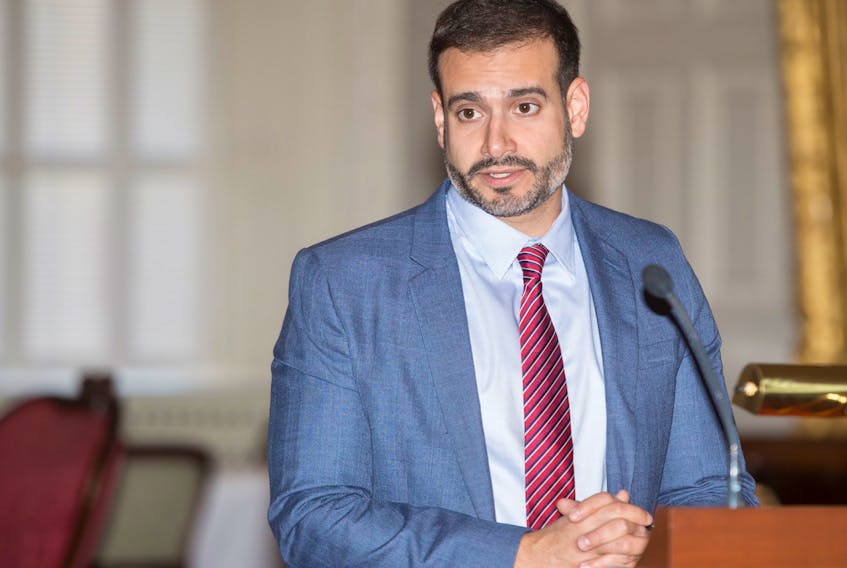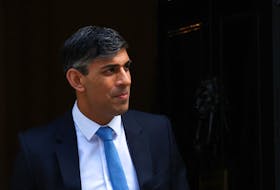KINGS COUNTY – A speech-language pathologist says the lack of consultation on education changes affecting the certification and working conditions of future specialists has only created confusion within Nova Scotia’s school system.
Karen Wassenberg, a retired speech-language pathologist currently working as a substitute at a Kings County school, says she has “no idea” why education minister Zach Churchill has moved to offer contract jobs to future speech-language pathologists and school psychologists, and to remove them from the Nova Scotia Teachers Union.
She says she also has no idea how the new system will function, nor how it will be up and running by September – the date given by the department for when these changes will come into effect.
“The thing that bothers me most is they seem to have given absolutely zero thought to how it’s going to work,” says Wassenberg.
Her concerns come as it’s been made public that future specialists, who were until this year required to obtain special certification to work within the province’s school system and to become union members, will be hired on as non-unionized contract workers and will not be able to receive the certification.

An open letter was emailed to the minister June 22 from a group of concerned school psychologists, speech-language pathologists and social workers – all of whom are affected by these changes – calling for “a halt to any changes” until consultation happens.
The Speech and Hearing Association of Nova Scotia also sent an open letter to the minister June 18.
Both letters detail concern that these changes have created “unknowns”, with the government yet to confirm factors like where these new specialists will be employed.
Wassenberg says there is “zero clarity” on how employees will move forward with their jobs in September since this issue, along with others like who will pay the new specialists’ salaries and how future and current specialists will continue to collaborate.
“We are supposed to meet with teachers, parents and other specialists to decide the best course for each student. These new colleagues won’t be part of that,” she says.
“My biggest question is this: ‘How?’ Current specialists are employed under education, but the new hires won’t be. How will this be in place by September?”
The June 22 letter also states hiring contract-based specialists will “make it even more challenging to recruit for new positions, fill open positions, and retain professionals currently in these positions,” citing New Brunswick, where only eight of 29 school psychology positions are currently filled after similar changes were made.

Wassenberg says had she been faced with a term job within a school versus working full-time with an outside employer, she “wouldn’t have even considered the term job.”
NSTU president Liette Doucet says she too agrees these changes will cause recruitment challenges. She also believes they are an attack on the specialists’ access to union powers like collective bargaining.
“Recruitment is already an issue. With these new term positions, it’s clear this will not only cause problems, but that the government doesn’t want these people to access our union rights,” she says.
SHANS president Patricia Cleave says the lack of clarity and right to NSTU representation both present problems for these specialists, and that the reasoning behind the changes doesn’t add up.
Deputy education minister Cathy Montreuil has stated publicly that the decision came through in part to ensure more flexibility for these specialists to work outside tradition school hours and throughout the summer period.
But Cleave says with summer schools already in place with dedicated specialists, she fails to understand why this was so crucial.
“I’m not sure why there couldn’t have been flexibility within the current system, which is run by the school board,” she says.
“It’s not clear what their thinking is on this.”
The department has since issued the following written statement in response to our request for comment:
“Every action we take, every decision we make is about student success. The commission has challenged us to think of different, innovative ways to address student needs. It was recommended in the Students First report that Nova Scotia emulate staffing models found in other jurisdictions where specialized services such as audiology and speech language pathology are available 12 months a year. Our actions to support inclusive education will help ensure students and parents have access to the professional services they need, when and where they need them. This change gives speech language pathologists and school psychologists flexibility to better support student needs – for example, addressing gaps in service over the summer and outside of school hours. We know when we have wrap-around services for students and families, like with the schools plus model, they do better. We believe in the professionalism of teaching and want to value and recognize those who have trained as teachers. We recognize teachers cannot do this alone.”









